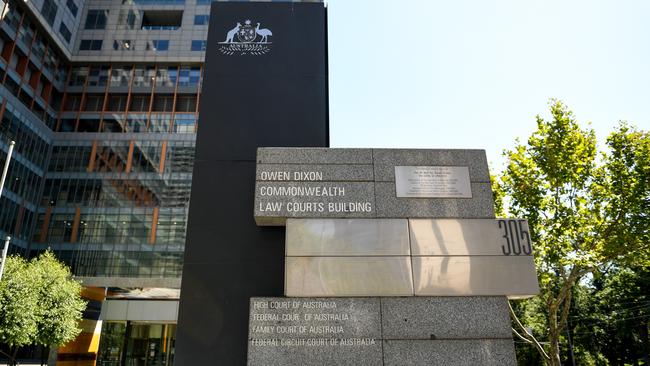
One of the strongest messages to have emerged from COVID has surely been a reminder of the importance of family relationships. But we’ve also been reminded of their fragility.
Many countries, including Australia, face the prospect of an avalanche of family breakdowns resulting from the extraordinary emotional and financial stresses of the past year. And how will we deal with this? Tragically, with a system dominated by family courts that were not coping or fit for purpose even at the start.
The Joint Select Committee has perpetuated the myth that few families are affected by the Family Court system. “The majority of families,” it said in an interim report in October, “do not engage with the family law system at all.” The reality is quite different, with thousands of children mired in our court system every year and our schools, communities and society affected as a consequence.
About 70,000 Australian children experience their parents’ divorce or separation in an average year and our family law system casts its shadow over every one of them — among them, parents who settle for less than is best for their children to avoid courts at all costs, and parents who realise the court can be a powerful ally in the coercive control of a partner or child. The committee has the opportunity to prevent great harm to many children by triggering a long-overdue transformation: from too-late, reactive, financially unsustainable systems to safer, more cost-effective early interventions and education for children and families.
For Kids Sake has pushed for the creation of a Child and Family Wellbeing Policy, under the remit of a Minister for Children and Families, to protect many of our most vulnerable citizens. Holistically. Proactively. Preventing harm before it starts and making sure that when parents do break up in future, their families are better equipped to avoid the damaging outcomes of today.
To ensure an enduring legacy, unlike its predecessors, the committee should also advocate a Productivity Commission investigation into the enormous financial costs to Australia of family breakdown. Such a report would give governments of all persuasions the incentive to adopt new approaches that are safer and far more cost-effective than courts.
With a staggering 110 separate acts of the commonwealth parliament to amend Australia’s Family Law Act, it’s tempting to quote the definition of insanity often attributed to Albert Einstein. Surely it’s long past time to stop doing the same thing over and over again and expecting different results?
The evidence is overwhelming: “tinkering” with family law does not work. Family law is not broken, but unfit for purpose and harmful because it’s slow and unaffordable and frightening and adversarial. Family courts are, quite simply, no place for families.
And yet, constrained by narrow terms of reference, if not perspectives, this latest committee has continued to seek the answer to the wrong question: “How do we improve family law?” Despite Scott Morrison declaring at the outset that this inquiry was about hearing from the people — “the lawyers have had their say” — its public hearings and much of its interim report were dominated by the legal profession. The real experts — doctors, scientists, health professionals and emergency ward staff who could have told of the life-threatening, public health crisis family breakdown represents, especially for children — were nowhere to be seen.
When children’s lives are at stake, it’s never too late to stop asking the wrong question. Nor, to start asking the right one: “How do we best ensure the safety and long-term wellbeing of children when parents split up?” When you do, the legal blinkers of a political class itself dominated by lawyers fall away and a clear, simple vision of the future emerges — one where child and family wellbeing is a priority; where all parents are treated with compassion and have access to the support they need to look after their families; where early interventions provide support and protection for children and family members long before anyone dreams of going near a court.
Skilled mediation, efficient arbitration and properly qualified professionals are urgently needed too, of course, but if that’s our focus, the avalanche will continue. Root causes will not be addressed. More lives will be lost.
Perhaps we should be grateful the committee has reached any consensus at all, given the polarised politics and personal experiences of many involved. But if it confines itself to “tinkering” with family law — as departing Chief Justice John Pascoe framed it when making an unprecedented call for a royal commission into his own institution — and fails to state clearly that family breakdown is a major health and social issue that family law is unsuited to address, it will have missed the best opportunity in a generation to give many of our children the brightest possible future.
Dr David Curl is chief executive of For Kids Sake, an organisation dedicated to making family separation safer for children.




On Monday, after an 18-month investigation, the Joint Select Committee on Australia’s Family Law System is expected to table its long-awaited recommendations in parliament. It’s the latest in nearly 70 inquiries and reports into a piece of legislation just 45 years old — the Family Law Act 1975. The signs are already clear: it will join its many predecessors in failing another generation of Australian children.